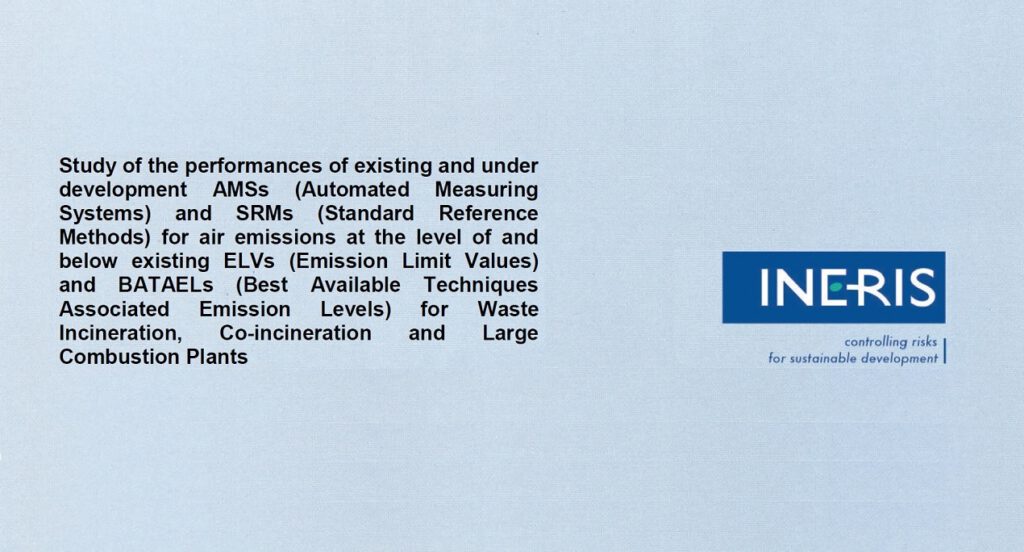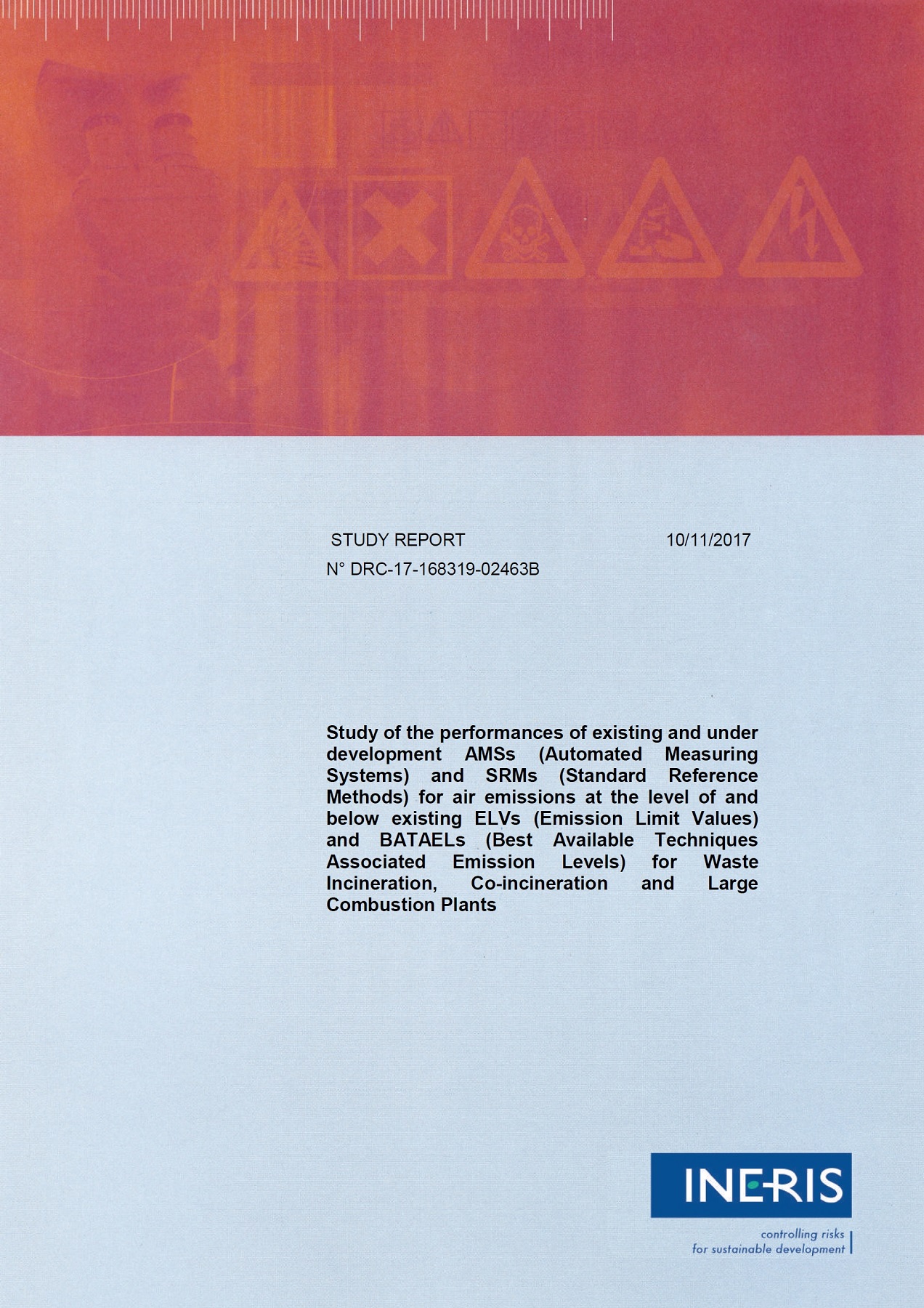INERIS Report on accuracy of air emissions measurement

This study prepared by INERIS for CEWEP, ESWET and FEAD address the question of performance of monitoring techniques for air emissions, in particular in the framework of the Industrial Emissions Directive (IED).
The focus of the study is on the reliability and accuracy of measurements at very low concentrations, which has significant implications on the drawing up of Best available techniques REFerence documents (BREFs), the setting of IED-based BAT-Associated Emission Levels (BATAELs), and the relative BATAEL-based ELVs.
This updated version of the study was done to take into account the comments that were made on the original study, published in summer 2016, by national experts of different Member States and from experts of the European IPPC Bureau. It also includes additional results of a measurement campaign obtained by INERIS during tests for certification confirmation where laboratories are compared, which illustrate the relative uncertainties as a function of concentrations.
The report concludes that for several substances high measurement uncertainty is observed at significantly lower concentrations than the IED’s ELVs, therefore it is desirable to maintain daily ELVs at levels necessary to keep a minimal risk when declaring whether an AMS is compliant or not in respect with standard requirements.
The full report is available here.
